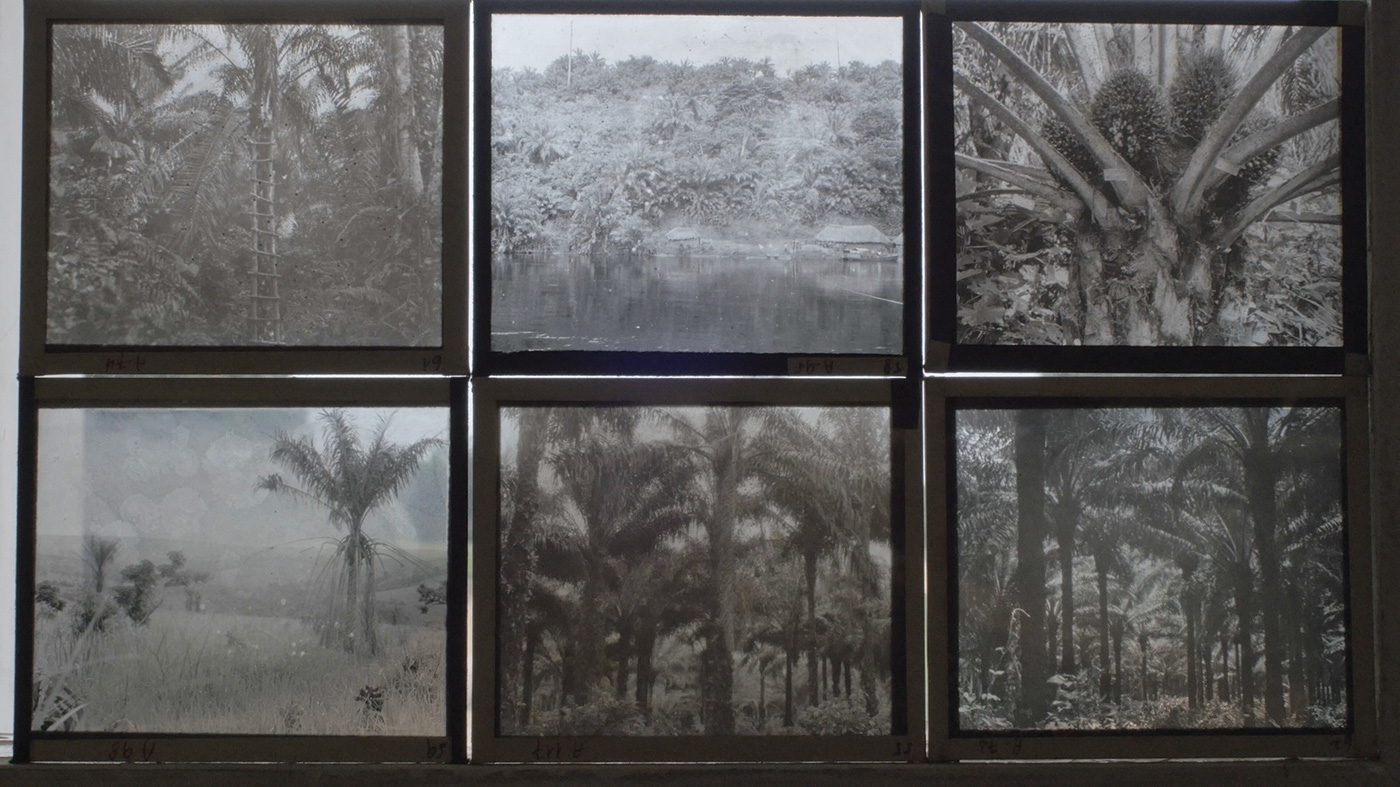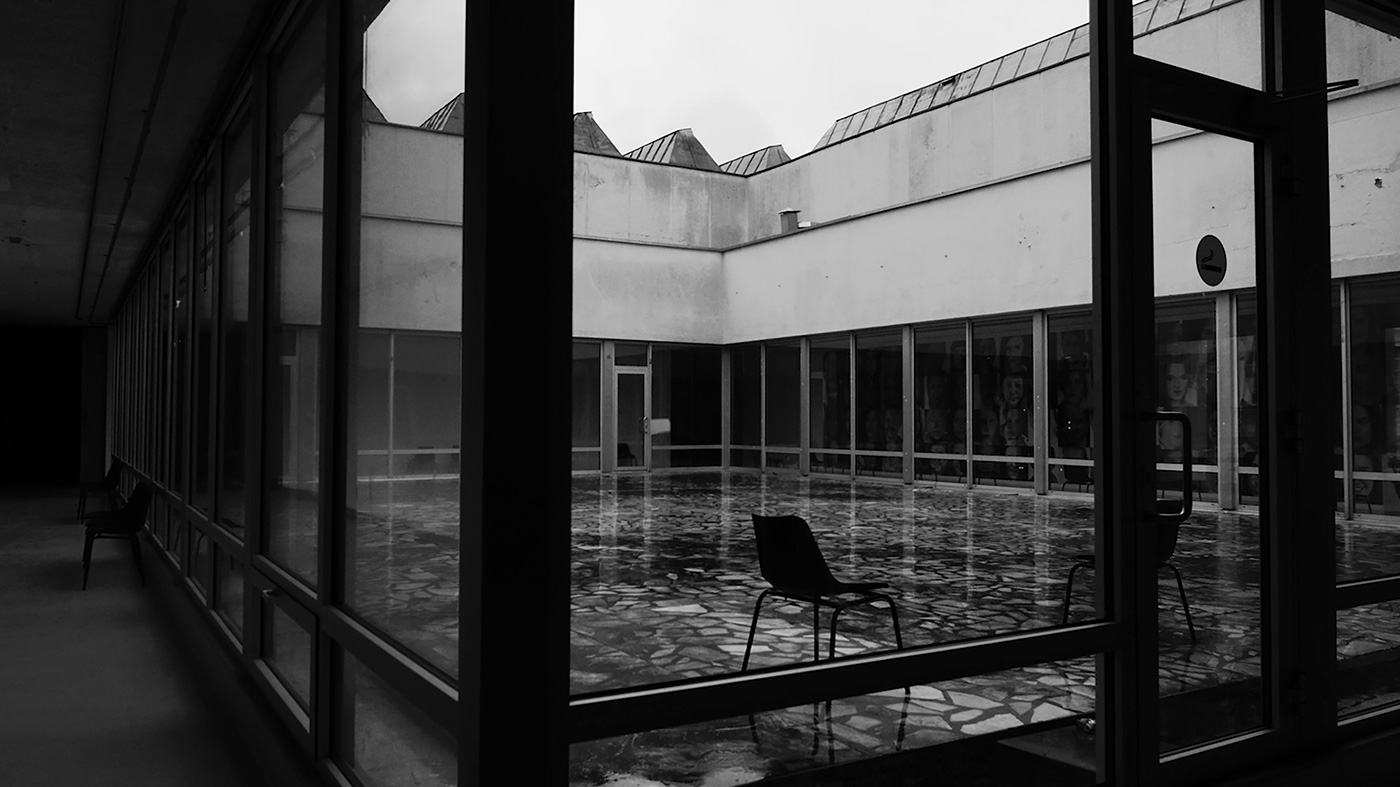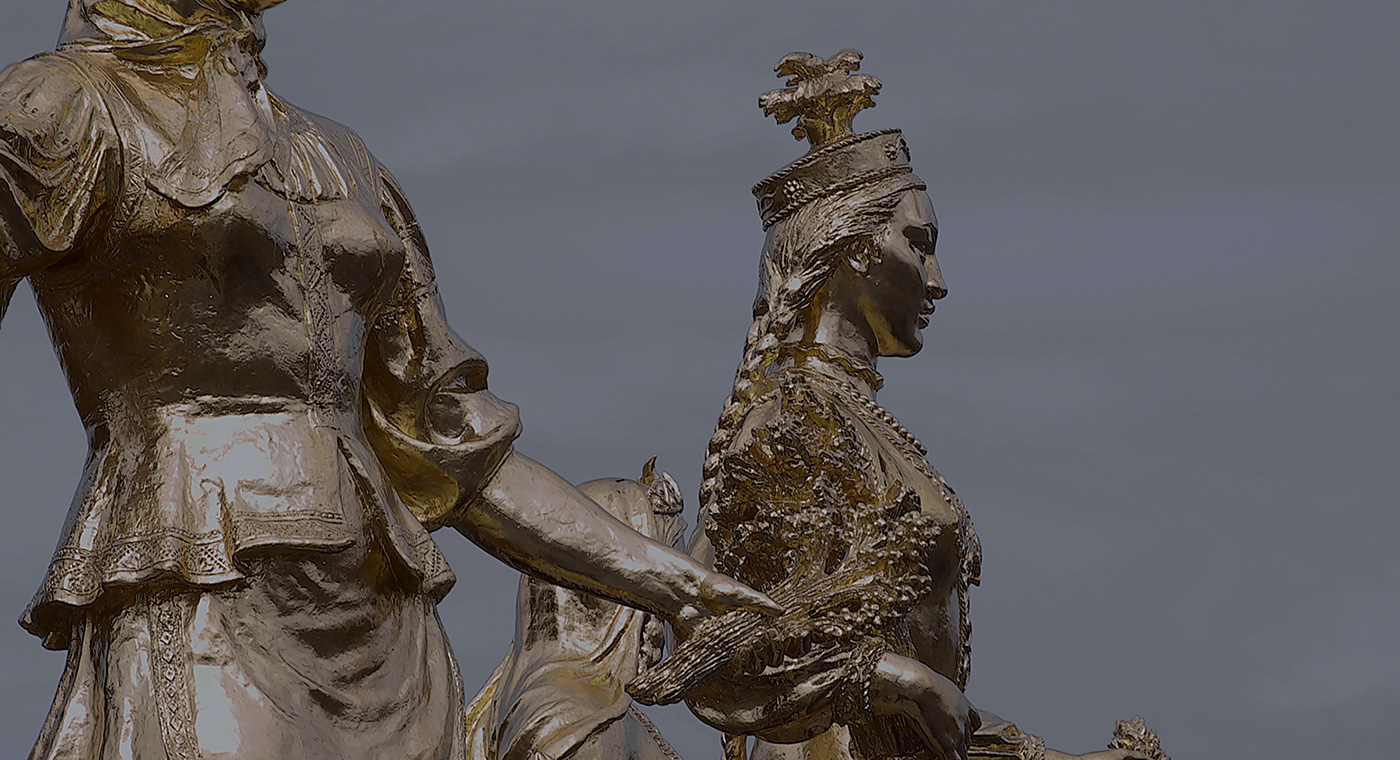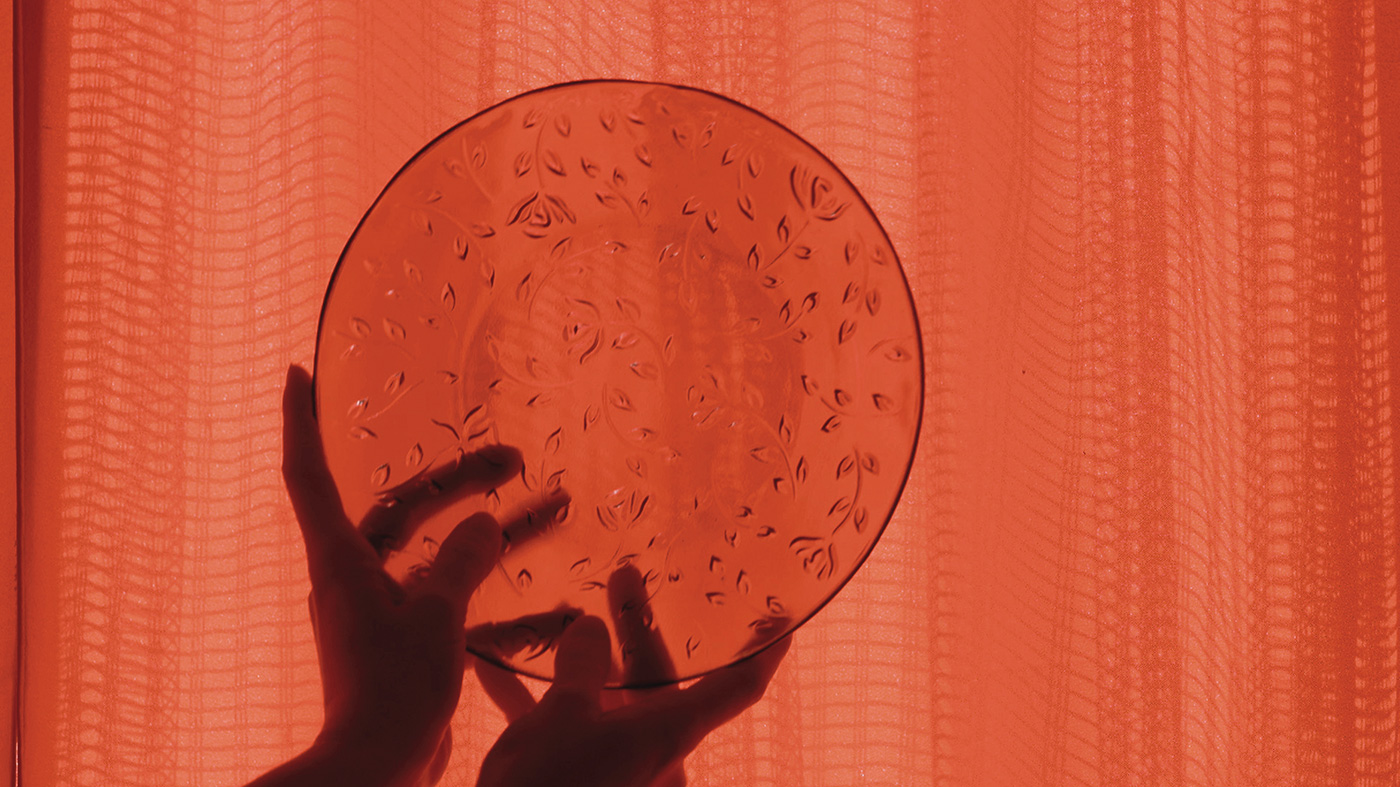The film swings between archival film clips dating from 1943 and 1957, sourced from INEAC’s colonial propaganda, and 21st century captures of the same Yangambi premises, like a pendulum that never moves time forwards. An acronym for the former National Institute for the Agronomic Study of the Belgian Congo, its post-colonial successor, the Institut national pour l’Etude et la Recherche Agronomique (INERA), is on film so suffused with past, colonial ‘coordinate systems’ that the present looks inert and at a standstill, as if held hostage by frames of knowledge that refuse to abdicate.
Decades after decolonization, that persistent hold is made explicit by an imposing and intact map of the Belgian Congo hung high on the wall, and by all the remaining rusty machines, labelled test tubes and rotting reports and specimens, dusty instruments of measure, and laboratories. Against the crumbling of these infrastructures, a devoted population of Congolese clerks seem to assist the preservation of the collected data and methods, in a choreography of gestures that the montage reveals to be inherited from the colonial decades. Amidst images of farmers burning trees to make the charcoal sold at surrounding markets, or those of clerks’ motivational posts proudly professing the exactitude of their pursuit, the atavism of colonial ecology seems apparent. (Excerpt from: Sandrine Colard, “From The Equator, I Have Seen The Future”.)
Biography
Since 2005, Sammy Baloji has been exploring the memory and history of the Democratic Republic of Congo. His work is an ongoing research on the cultural, architectural and industrial heritage of the Katanga region, as well as questioning the impact of the Belgian colonization. He touches upon a variety of media to translate his research into artefacts. His use of photographic archives allows him to manipulate time and space, comparing ancient colonial narratives with contemporary economic imperialism. His video works, installations, sculptures, and photographic series highlight how identities are shaped, transformed, perverted and reinvented. His critical view of contemporary societies is a warning about how cultural cliches continue to shape collective memories and thus allow social and political power games to continue to dictate human behavior.
His recent personal exhibitions include: “Sammy Baloji”, Goldsmiths CCA, London (2024), “Unextractable: Sammy Baloji invites”, Kunsthalle Mainz, Mainz (2024), “Style Congo: Heritage & Heresy”, CIVA, Brussels (2023), “K(C)ongo, Fragments of Interlaced Dialogues. Subversive Classifications”, Palazzo Pitti, Florence (2022).
He has recently participated in the 35th Bienal de Sao Paulo (2023), the Architecture Biennale of Venice (2023), the 15th Sharjah Biennial (2023), the Sydney Biennial (2020), documenta 14 (Kassel/Athens, 2017)
Sammy Baloji co-founded in 2008 the Rencontres Picha/Biennale de Lubumbashi. In September 2019 Sammy Baloji started a PhD in Artistic Research titled “Contemporary Kasala and Lukasa: towards a Reconfiguration of Identity and Geopolitics” at Sint Lucas Antwerpen.



